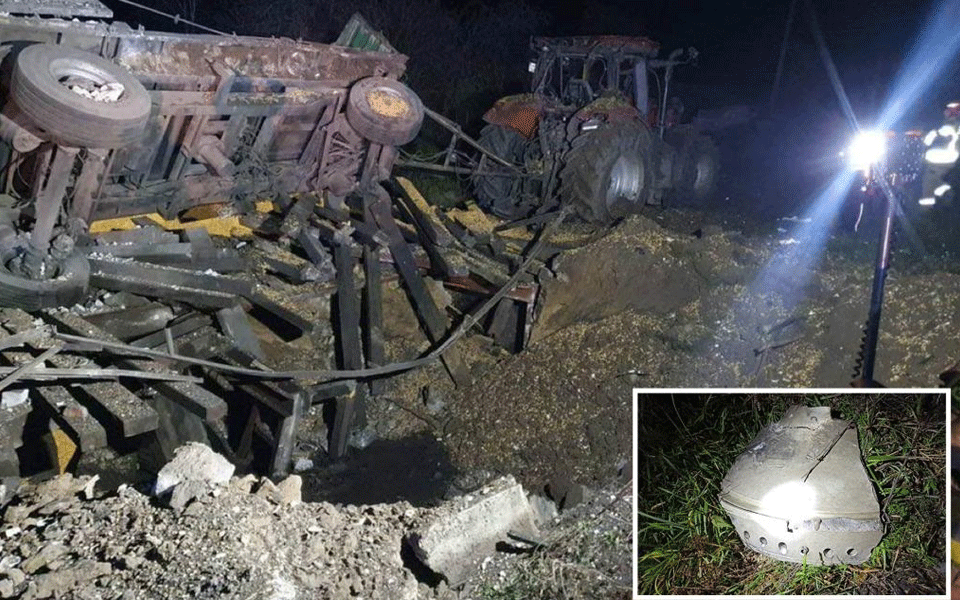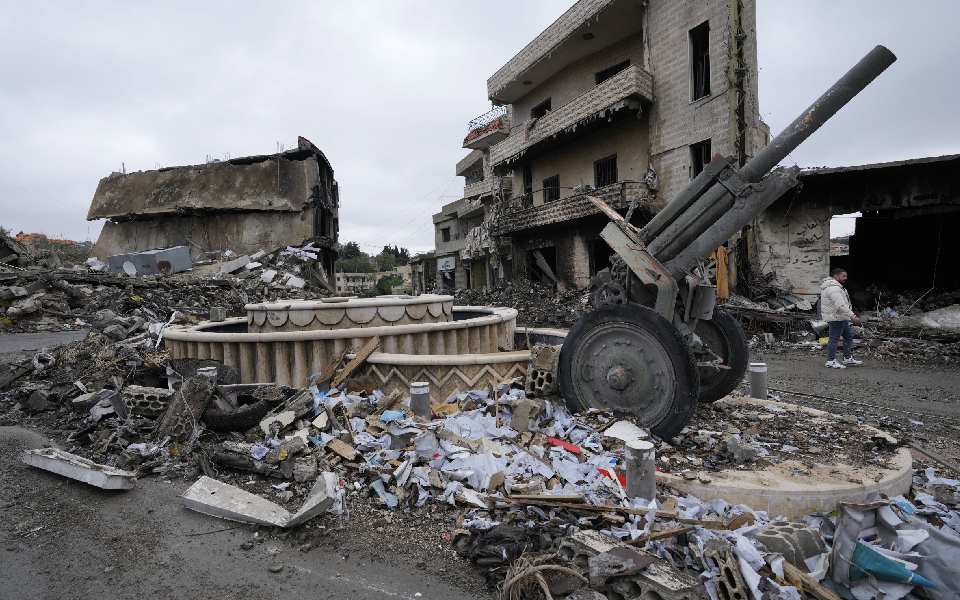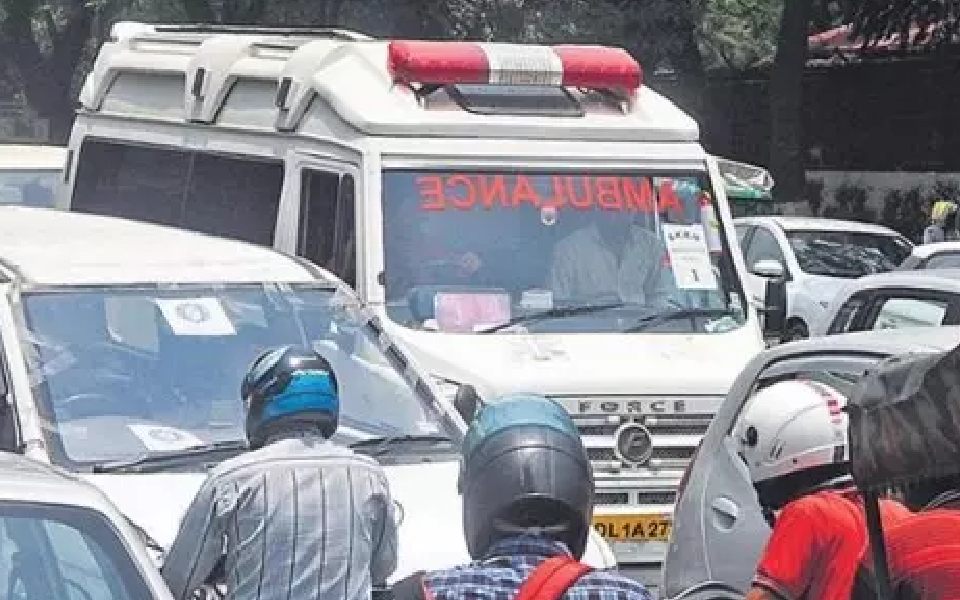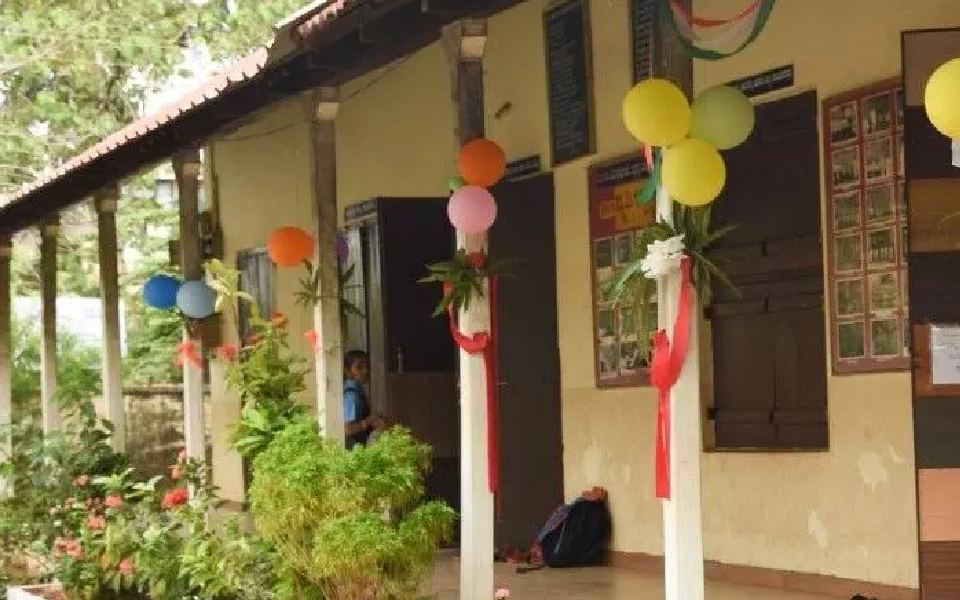Kyiv (AP): Poland said early on Wednesday that a Russian-made missile fell in the eastern part of the country, killing two people in a blast that marked the first time since the invasion of Ukraine that Russian weapons came down on a NATO country.
Ukrainian President Volodymr Zelenskyy decried the strike as "a very significant escalation" of the war.
Polish Prime Minister Mateusz Morawiecki said the government was investigating and raising its military preparedness.
A statement from the Polish Foreign Ministry identified the missile as being made in Russia. But President Andrzej Duda was more cautious about its origin, saying that officials did not know for sure who fired it or where it was made. He said it was "most probably" Russian-made but that is being still verified.
Meanwhile, NATO Secretary-General Jens Stoltenberg called an emergency meeting of the alliance's envoys to discuss the events close to the Ukrainian border in Poland.
Poland's statement did not address the circumstances of the strike, including whether it could have been a targeting error or if the missile could have been knocked off course by Ukrainian missile defences.
If Russia had deliberately targeted Poland, it would risk drawing the 30-nation alliance into the conflict at a time when it is already struggling to fend off Ukrainian forces.
Polish media reported that the strike took place in an area where grain was drying in Przewod w, a village near the border with Ukraine.
The Russian Defence Ministry denied being behind "any strikes on targets near the Ukrainian-Polish border" and said in a statement that photos of purported damage "have nothing to do" with Russian weapons.
Polish Foreign Minister Zbigniew Rau summoned the Russian ambassador and "demanded immediate detailed explanations", the government said.
On Tuesday, Russia pounded Ukraine's energy facilities with its biggest barrage of missiles yet, striking targets across the country and causing widespread blackouts.
The barrage also affected neighbouring Moldova. It reported massive power outages after the strikes knocked out a key power line that supplies the small nation, an official said.
The missile strikes plunged much of Ukraine into darkness and drew defiance from Zelenskyy, who shook his fist and declared: "We will survive everything."
In his nightly address, the Ukrainian leader said the strike in Poland offered proof that "terror is not limited by our state borders".
"We need to put the terrorist in its place. The longer Russia feels impunity, the more threats there will be for everyone within the reach of Russian missiles," Zelenskyy said.
Russia fired at least 85 missiles, most of them aimed at the country's power facilities, and blacked out many cities, he said.
The Ukrainian energy minister said the attack was "the most massive" bombardment of power facilities in the nearly nine-month-old Russian invasion, striking both power generation and transmission systems.
The minister, Herman Haluschenko, accused Russia of "trying to cause maximum damage to our energy system on the eve of winter".
The aerial assault, which resulted in at least one death in a residential building in the capital, Kyiv, followed days of euphoria in Ukraine sparked by one of its biggest military successes -- the retaking last week of the southern city of Kherson.
The power grid was already battered by previous attacks that destroyed an estimated 40 per cent of the country's energy infrastructure. Zelenskyy said the number of Ukrainians without power had fallen from 10 million (one crore) to two million (20 lakh) by Tuesday evening.
Russian President Vladimir Putin has not commented on the retreat from Kherson since his troops pulled out in the face of a Ukrainian offensive. But the stunning scale of Tuesday's strikes spoke volumes and hinted at anger in the Kremlin.
By striking targets in the late afternoon, not long before dusk began to fall, the Russian military forced rescue workers to labour in the dark and gave repair crews scant time to assess the damage by daylight.
More than a dozen regions -- among them Lviv in the west, Kharkiv in the northeast and others in between -- reported strikes or efforts by their air defences to shoot missiles down. At least a dozen regions reported power outages, affecting cities that together have millions of people. Almost half of the Kyiv region lost power, authorities said.
Zelenskyy warned that more strikes were possible and urged people to stay safe and seek shelter.
"Most of the hits were recorded in the centre and in the north of the country. In the capital, the situation is very difficult," said a senior official, Kyrylo Tymoshenko.
He said a total of 15 energy targets were damaged and claimed that 70 missiles were shot down. A Ukrainian Air Force spokesman said Russia used X-101 and X-555 cruise missiles.
As city after city reported attacks, Tymoshenko urged Ukrainians to "hang in there".
With its battlefield losses mounting, Russia has increasingly resorted to targeting Ukraine's power grid, seemingly hoping to turn the approach of winter into a weapon by leaving people in the cold and dark.
Dutch Foreign Minister Wopke Hoekstra took to a bomb shelter in Kyiv after meeting his Ukrainian counterpart and, from his place of safety, described the bombardment as "an enormous motivation to keep standing shoulder-to-shoulder" with Ukraine.
The strikes came as authorities were already working furiously to get Kherson back on its feet and beginning to investigate alleged Russian abuses there and in the surrounding area.
The southern city is without power and water, and the head of the UN human rights office's monitoring mission in Ukraine, Matilda Bogner, on Tuesday decried a "dire humanitarian situation" there.
Speaking from Kyiv, Bogner said her teams are looking to travel to Kherson to try to verify allegations of nearly 80 cases of forced disappearances and arbitrary detention.
The head of the National Police of Ukraine, Igor Klymenko, said authorities are to start investigating reports from Kherson residents that Russian forces set up at least three alleged torture sites in now-liberated parts of the wider Kherson region.
The retaking of Kherson dealt another stinging blow to the Kremlin. Zelenskyy likened the recapture to the Allied landings in France on D-Day in World War II, saying both were watershed events on the road to eventual victory.
But large parts of eastern and southern Ukraine remain under Russian control, and fighting continues.
In other developments, leaders of most of the world's economic powers were drawing closer to approval of a declaration strongly denouncing Russia's invasion.
On Tuesday, US President Joe Biden and Zelenskyy pressed fellow G20 leaders at the summit in Indonesia for a robust condemnation of Russia's nuclear threats and food embargoes. More discussion and a possible vote come Wednesday.
Let the Truth be known. If you read VB and like VB, please be a VB Supporter and Help us deliver the Truth to one and all.
Beirut, Nov 28: The Israeli military on Thursday said its warplanes fired on southern Lebanon after detecting Hezbollah activity at a rocket storage facility, the first Israeli airstrike a day after a ceasefire between Israel and Hezbollah took hold.
There was no immediate word on casualties from Israel's aerial attack, which came hours after the Israeli military said it fired on people trying to return to certain areas in southern Lebanon. Israel said they were violating the ceasefire agreement, without providing details. Lebanon's state-run National News Agency said two people were wounded.
The back-to-back incidents stirred unease about the agreement, brokered by the United States and France, which includes an initial two-month ceasefire in which Hezbollah members are to withdraw north of the Litani River and Israeli forces are to return to their side of the border. The buffer zone would be patrolled by Lebanese troops and UN peacekeepers.
On Thursday, the second day of a ceasefire after more than a year of bloody conflict between Israel and Hezbollah, Lebanon's state news agency reported that Israeli fire targeted civilians in Markaba, close to the border, without providing further details. Israel said it fired artillery in three other locations near the border. There were no immediate reports of casualties.
An Associated Press reporter in northern Israel near the border heard Israeli drones buzzing overhead and the sound of artillery strikes from the Lebanese side.
The Israeli military said in a statement that “several suspects were identified arriving with vehicles to a number of areas in southern Lebanon, breaching the conditions of the ceasefire.” It said troops “opened fire toward them” and would “actively enforce violations of the ceasefire agreement.”
Israeli officials have said forces will be withdrawn gradually as it ensures that the agreement is being enforced. Israel has warned people not to return to areas where troops are deployed, and says it reserves the right to strike Hezbollah if it violates the terms of the truce.
A Lebanese military official said Lebanese troops would gradually deploy in the south as Israeli troops withdraw. The official spoke on condition of anonymity because they were not authorized to brief media.
The ceasefire agreement announced late Tuesday ended 14 months of conflict between Israel and Hezbollah that began a day after Hamas' Oct. 7, 2023 attack out of Gaza, when the Lebanese Hezbollah group began firing rockets, drones and missiles in solidarity.
Israel retaliated with airstrikes, and the conflict steadily intensified for nearly a year before boiling over into all-out war in mid-September. The war in Gaza is still raging with no end in sight.
More than 3,760 people were killed by Israeli fire in Lebanon during the conflict, many of them civilians, according to Lebanese health officials. The fighting killed more than 70 people in Israel — over half of them civilians — as well as dozens of Israeli soldiers fighting in southern Lebanon.
Some 1.2 million people were displaced in Lebanon, and thousands began streaming back to their homes on Wednesday despite warnings from the Lebanese military and the Israeli army to stay out of certain areas. Some 50,000 people were displaced on the Israeli side, but few have returned and the communities near the northern border are still largely deserted.
In Menara, an Israeli community on the border with views into Lebanon, around three quarters of homes are damaged, some with collapsed roofs and burnt-out interiors. A few residents could be seen gathering their belongings on Thursday before leaving again.





